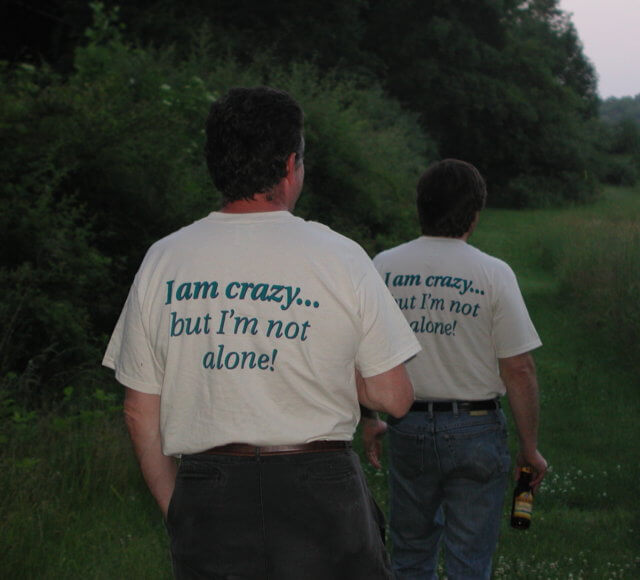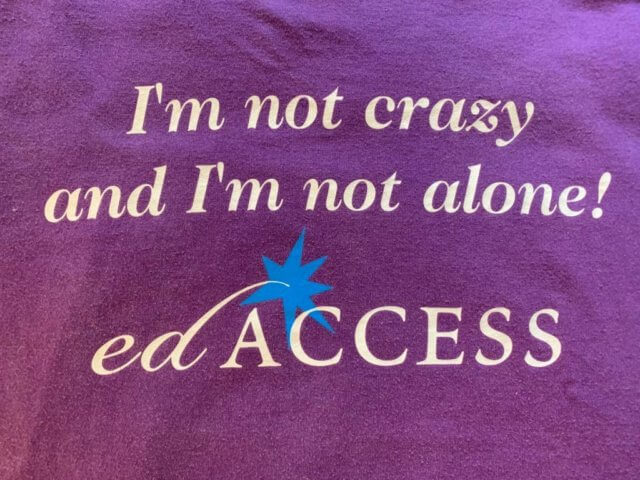“I am crazy but I’m not alone.”
—participant evaluation comment
Someone wrote “I am crazy but I’m not alone” on the paper evaluation form for the first edACCESS peer conference in 1992. The next year we printed it on a banner above the entryway to the event, and it’s been edACCESS’s official motto ever since.
There’s more behind this simple phrase than meets the eye.
Everybody’s weird
We live in a culture that simultaneously values “being normal” while often glorifying those who are different. A long time ago, I concluded that this dissonance is reduced when you realize that, in reality, everybody’s weird in one way or another. Yes: you’re weird, I’m weird, everybody’s weird! (Don’t believe me? Introduce me to anyone I can communicate with, and I bet I can find something about them in five minutes or less that most people would think of as weird.)
When a group of people with something in common come together to share and learn, peer conferences like edACCESS allow people to discover that things that have been driving them crazy have been driving their peers crazy too. The relief of being in an environment where it’s safe to share what you thought was your craziness alone, and discovering that you’re not alone is immense!
And that leads to my preferred variant of this powerful motto.
I’m not crazy and I’m not alone!
How many times have you thought “This issue is important to me, but no one else seems to feel the same way.” or “Am I the only person who’s having trouble with this?” Perhaps you feel stupid, or out of touch with others, i.e. alone?
When you discover that challenges you thought were unique to you are actually shared and validated by peers, you realize “I’m not crazy! Here is a community that is having similar experiences to me! I’m not alone!”
The beauty of “I’m not crazy” is that it redefines your very-real weirdness as normal, because everybody’s weird. This frees you up to work on being who you are, rather than focussing negatively on what makes you different.
And that’s a good thing.



This is great, Adrian. Only when you facilitate conversations where everyone is comfortable sharing, can you create this kind of experience for the participants. Keep up the good work!